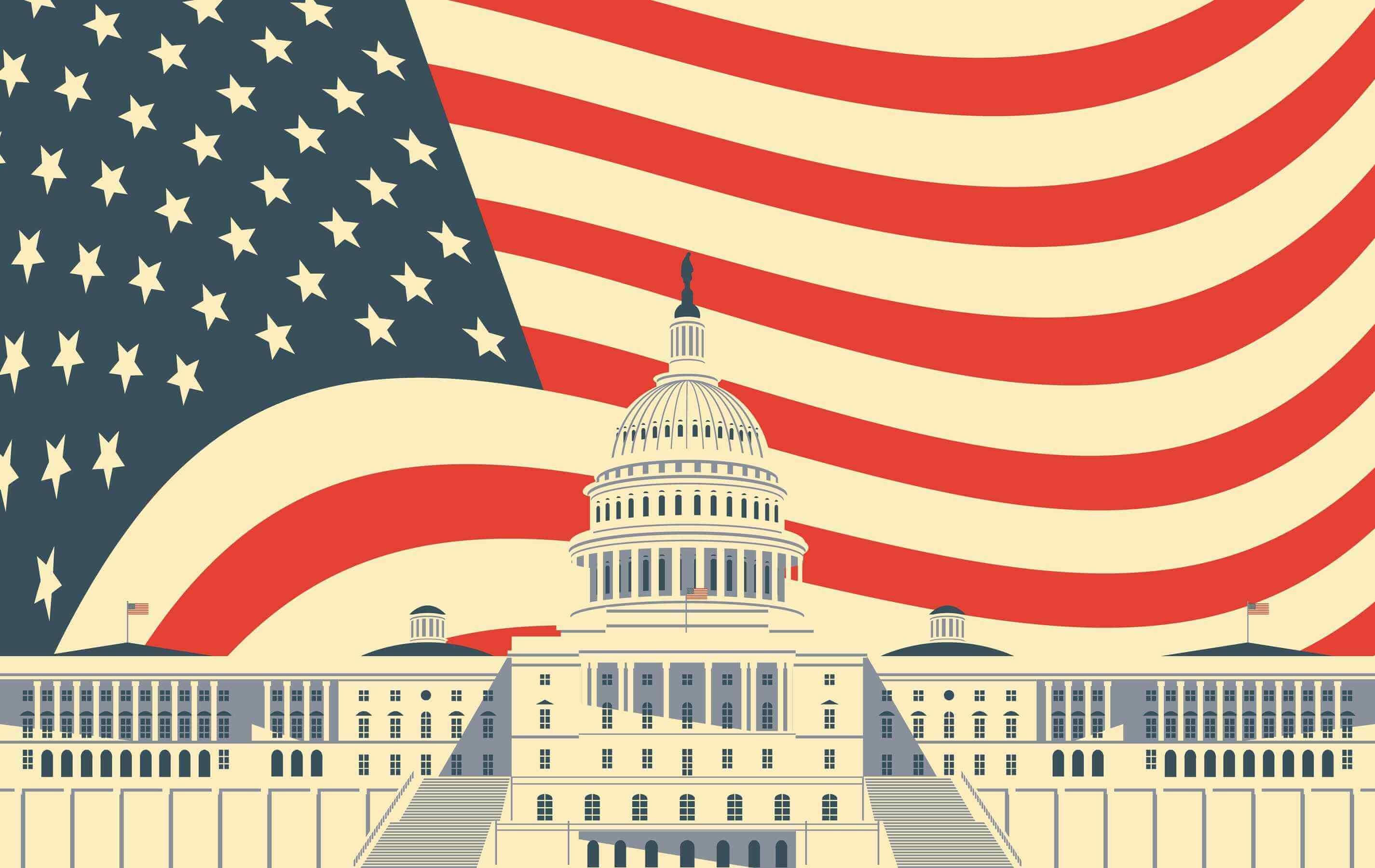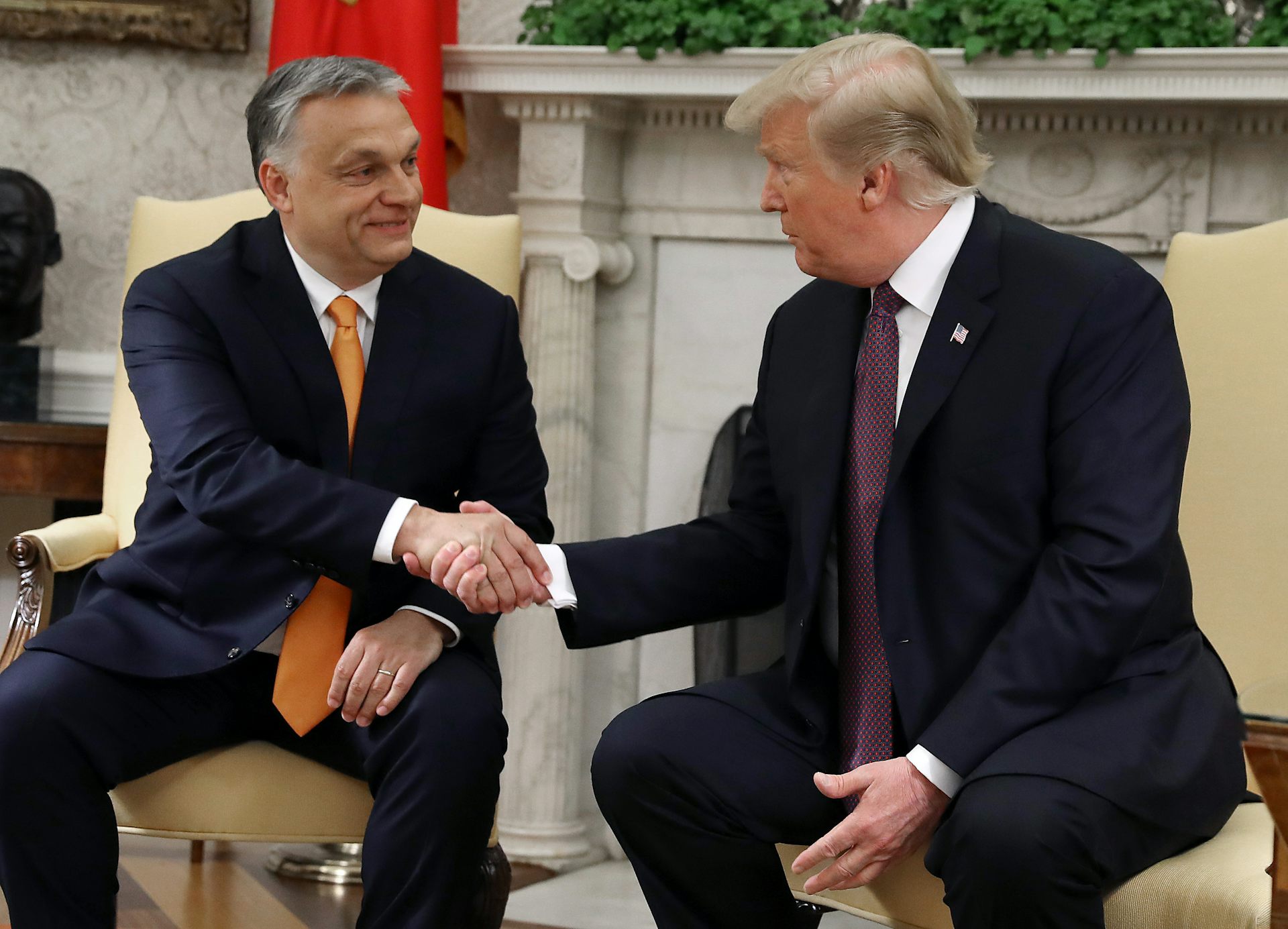Trump Faces A House Republican Mutiny

First they caved on the speaker election. Then last month they fell in line on a budget vote, and again on a divisive government funding bill. But now, it seems, House conservatives are ready to make a stand.
Speaker Mike Johnson is staring down the most significant internal revolt he’s faced all year — one that threatens his own plans to advance the Republican legislative agenda and one that even President Donald Trump has been so far unable to squelch.
Dozens of House Republicans are undecided or outright opposed to rubber-stamping a Senate-approved budget blueprint for the GOP’s domestic policy megabill, and an all-out whip effort from Johnson and his leadership team — including a private meeting between Trump and key holdouts — has only produced modest gains. If Johnson and Trump can’t flip most of them in the next 48 hours, lawmakers will start to board flights for a two-week recess, denying the president a show of legislative progress as financial markets wobble over his tariffs.
“Why am I voting on a budget based on promises that I don’t believe are going to materialize?” one key GOP holdout, Rep. Chip Roy of Texas, said about the Senate plan.
Roy and other hard-right members have bristled previously at Johnson’s big legislative moves, requiring significant attention from GOP whips and sometimes from Trump himself. But previous mutinies stayed relatively small and manageable. This time, the opposition is piling up and rebellion is seemingly in the air as deficit hawks across the Republican conference dig in to secure deep cuts to federal spending.
What’s also different is how determined some members are to defy Trump, who has repeatedly intervened at key junctures this year to help bring holdouts along. Last month, he threatened to boost primary challengers to unseat the one House Republican who voted against the GOP spending bill to avoid a shutdown.
“I wouldn't want to be the person that stands in the way of the president's agenda,” Rep. Lisa McClain of Michigan, the No. 4 GOP leader, said in a brief interview.
But right now, the holdouts are enjoying strength in numbers. The president this week urged House Republicans to “QUICKLY” green-light the revamped budget. To his face Tuesday, several said "no."
Roy indicated at the White House meeting with Trump that he would oppose the budget plan, according to two Republicans with direct knowledge of the matter. Another prominent leader — House Freedom Caucus Chair Andy Harris (R-Md.) — even turned down an invitation to the meeting, saying Trump was “just not going to change my mind.”
“There’s nothing that I can hear at the White House that I don’t understand about the situation,” he told reporters.
It represents a sudden end to Trump’s honeymoon on Capitol Hill, where he’s held near-absolute power over Republicans — including by gutting a December funding deal before he returned to the White House. Until this point, even the threat of a primary challenge or other political retribution has been enough to bring most GOP lawmakers in line. This time, however, fiscal hawks are determined to act on their deeply held beliefs in small government — and make good on long-standing campaign promises to significantly slash federal spending. They’re also deeply wary of eventually being rolled by the Senate and, to some degree, a president who is eager to enact sweeping tax cuts while claiming a variety of additional spending offsets to pay for them.
Trump in a social media post Tuesday said he endorsed “hopefully in excess” of $1 trillion in cuts at the White House confab, which he called a “very good meeting” with “great people.” That’s a far cry from the $1.5 trillion to $2 trillion in spending cuts the House conservatives want to mandate in the budget framework. He was scheduled to address more House Republicans Tuesday night at a party fundraising gala.
“We've got to reduce spending to put the country on a better path fiscally,” said Rep. Lloyd Smucker (R-Pa.), a senior Budget Committee member who also sits on the tax-writing Ways and Means Committee. “I think the disagreement is, some of us really believe that the resolution is an important foundation on which to build a good bill. And so we want to ensure that some of the principles that all of us agreed to are included.”
Rep. Scott Perry (R-Pa.), a former chair of the House Freedom Caucus, said he wants the Senate’s fiscal framework to “mirror” the House’s mandates for $2 trillion in spending cuts to balance out tax cuts.
“It’s better to get it right than to get it fast,” said Perry, who attended the meeting with Trump.
In the private White House meeting, Trump tried and failed to force Perry and his fellow rebels to fall in line as Johnson rushed toward a vote on the budget framework — though some other members who attended, including Rep. Ron Estes of Kansas, said they were ready to come along.
By the end of the day, House leaders’ timeline was slipping; they were forced to postpone a planned Rules Committee meeting meant to set up a Wednesday floor vote on the plan.
“If I were advising them, I’d tell them to wait another week,” Rep. Andy Ogles (R-Tenn.), a Freedom Caucus member, said Tuesday afternoon. But he also acknowledged the extra time wouldn’t matter: “You’re probably delaying the inevitable.”
The White House meeting in fact produced little change in the opposition’s position, according to another person with direct knowledge of the matter. As an alternative to voting on the Senate-approved plan, some House hard-liners want to go to conference with the Senate and hash out a new compromise, something lawmakers across the aisle have rejected. Harris has floated simply starting to write the megabill and finalizing the budget only after Republicans are ready to pass it.
Rep. Rich McCormick (R-Ga.), another holdout, said he had heard from other Republicans that the White House meeting with Trump, heavy on Freedom Caucus members, had been contentious. He estimated that there were as many as 40 House Republicans who were either opposed outright or undecided.
“We have to come to a consensus, and hopefully it'll be something that makes sense to 218 of us," McCormick added. "But until then, we don't have a lot to talk about.”
Benjamin Guggenheim, Jennifer Scholtes and Ben Jacobs contributed to this report.


